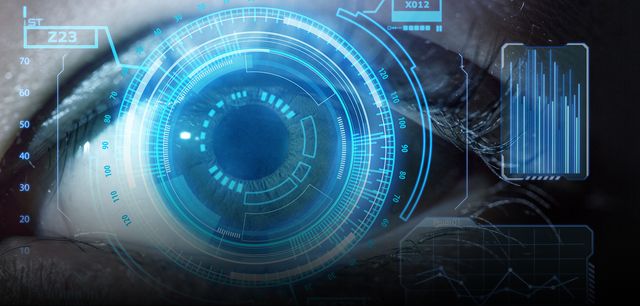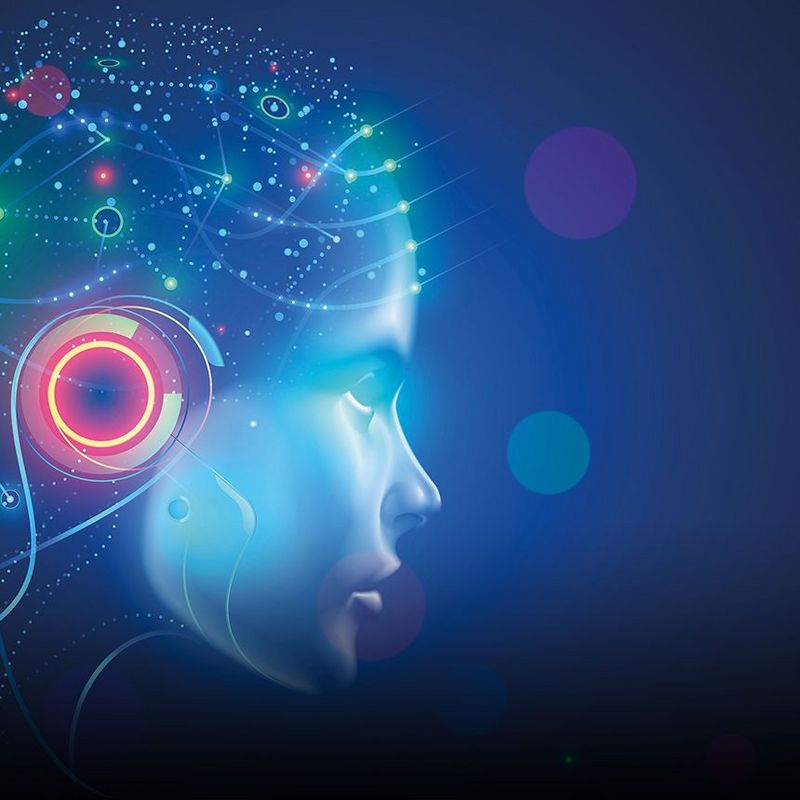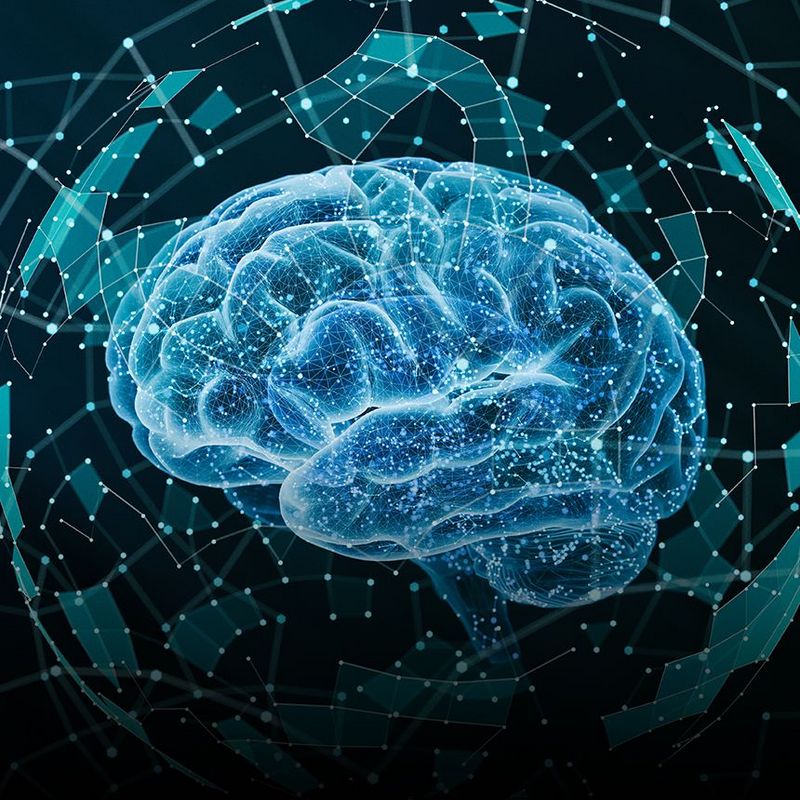02. June 2022
AI is being deployed across a broad front in modern medicine, for purposes ranging from breast cancer diagnosis to stroke prevention. It is not intended to replace doctors, merely to deliver reliable data to improve the basis for decision-making. Here are five examples.
AI in cancer diagnostics
Recognising patterns in images is one of AI’s core skills. This capability can also be used in medicine, for example in the diagnosis of skin or breast cancer. Some 25,000 X-rays of the female breast are examined by the medical staff at the Dr. Hancken Clinic in Stade every year. Detecting abnormalities on these images requires a lot of training and experience. And the experts always have to remain attentive to ensure that they don’t overlook anything. It is for this reason that each mammogram is assessed by two specialist radiologists. To make the diagnosis even more reliable, an AI system at the Breast Centre in Stade carries out a background search for abnormalities – without influencing the doctors in their judgment. The software only sounds an alarm when the radiologists are happy with a finding, but the AI is not. In such cases, the doctors will then scrutinise the recordings all over again. According to Thilo Töllner, senior physician at the clinic’s breast centre, although the AI does not necessarily work better, it does perform at the same level and is essentially tireless. In this way, artificial intelligence can support human doctors and, in some cases, significantly speed up their work.
© GettyImagesDuring a mammogram, AI can look for abnormalities and thus make the doctor's diagnosis more precise.
AI for placental measurement
Unborn babies are supplied with nutrients and oxygen in the womb by the placenta. If this organ is too small, the risk arises that the foetus will not get what it needs, However, this is difficult to determine, which is why doctors are currently paying particular attention to foetal growth during check-ups. “They usually notice any deficiency relatively late,” says Julia Schnabel, Professor of Computational Imaging and AI in Medicine at the Technical University of Munich. Schnabel and her team have therefore developed an AI-supported method for placental measurement. This consists of a structure with several ultrasound heads, on which the computer can store images almost simultaneously and then determine the volume of the placenta. To allow the AI to recognise a placenta, it is first trained by being shown a large number of ultrasound images of the organ. The results of the pilot project are promising, says Schnabel. The software does more than just take competent measurements of the size of the placenta. When fed with further data, it can also recognise other organs and body parts of the foetus. However, the algorithms are not intended to replace human experts. “When it comes to assessing whether a child should be delivered early or not, all future decisions will always rest with the doctor,” says Schnabel.
AI for early asthma detection
An AI-supported sensor system from Bosch has been in use in space since 2019. On the ISS space station, the highly sensitive sensors continuously record the sounds made by machines and devices. These sounds are then analysed by the AI to find out where maintenance is needed. In the future, the system will also be used in paediatric medicine – where it will also detect lung diseases like asthma at an early stage. The experimental set-up looks like this: a sensitive microphone records the sounds of children speaking and breathing. These sounds are stored in a database, along with the child’s diagnosis. Based on this information, the idea is for the AI to learn which breathing sounds are indicators of disease. An initial study with the sharp-eared sensors was launched in the US at the beginning of 2022.
© GettyImagesAsthma is easy to hear. But AI is now also excellent at analysing breathing and speaking sounds.
AI for personalised stroke treatment
Every 40th person in Germany has already had a stroke at some point. A quarter of those affected remain in permanent need of care. A consortium of international researchers led by the Charité hospital in Berlin aims to improve the prevention and treatment of stroke and increase the quality of life of patients – using AI. In the Precise4Q project, computer-aided predictive models are intended to make it possible to provide optimised care, tailored to the individual conditions and requirements of the individual patients. For this purpose, the researchers collect large amounts of data from different sources with which they feed self-learning computer models. These models are then integrated into an information platform that doctors and hospitals can use as a support system for their decisions. “Precise4Q will provide decisive impetus for the personalised, targeted and responsible use of digital data in medicine,” says Dietmar Frey from the Charité, who is coordinating the project, which is being funded by the EU to the tune of six million euros.
AI as a surgical assistant
Surgical interventions could also be optimised in the future using AI, says computer scientist Lena Maier-Hein. She heads the Department of Intelligent Medical Systems at the German Cancer Research Centre (Deutsches Krebsforschungszentrum, DKFZ). “There are millions of closed surgical cases in hospitals. By evaluating the cases using artificial intelligence, we will be able to share, assess and use the experience garnered from these treatments to treat patients in the best possible way,” says Maier-Hein. But the problem here is that surgical data are often not recorded or, at least, not stored permanently. Bureaucratic hurdles can also stand in the way of their use. The computer scientist’s proposed solution is to introduce a data donor card for patients. “In this way, every patient could ultimately help revolutionise surgery using artificial intelligence,” says Maier-Hein. For the Central Ethics Committee of the German Medical Association (ZEKO), the use of AI in medicine also has a lot of potential when it comes to supporting doctors in their decisions. However, the systems are not error-free. The responsibility for diagnosis and therapy cannot and should not be taken away from human medical staff, the Commission says: “Only doctors are able to locate the clinical picture within the patient’s overall biography and take into account psychological and emotional factors that are both important for the diagnosis and can be decisive when it comes to offering the appropriate therapy.” In other words, artificial intelligence will not be donning the white coat in the operating theatre or consulting room at any point in the future.





